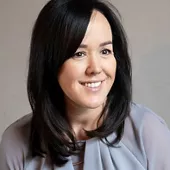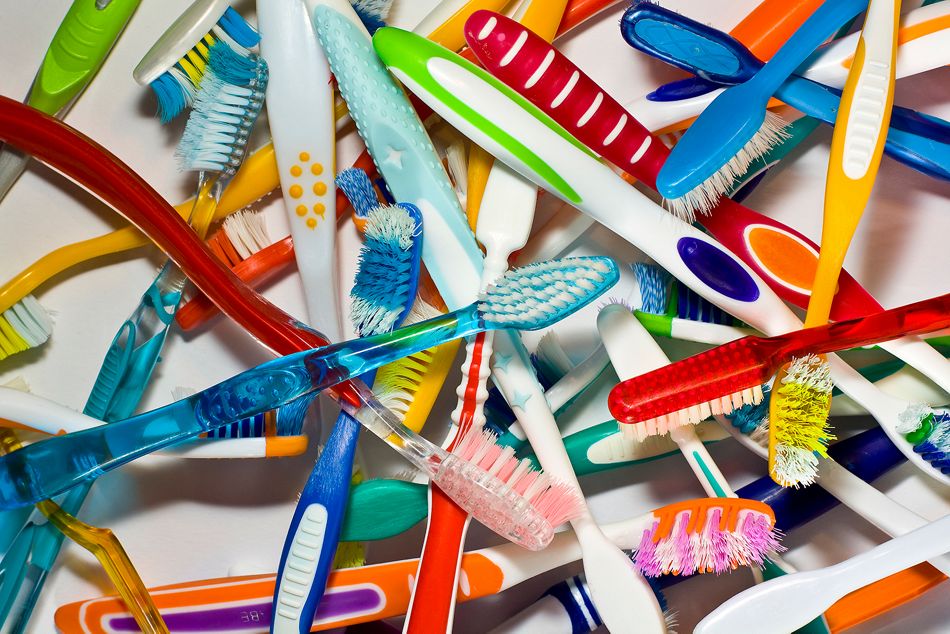
- Dental practice remains one of the industries with the highest use of single-use plastics
- Clinics must make the switch to more sustainable energies and take small initiatives such as reducing water and electricity consumption
- Patients are serious about sustainability and meeting their expectations can nurture a long-term patient loyalty.
- The treatment coordinator (TCO), as the first port of call, is the best person to lead the ethical choices conversation.
Sustainability is interwoven into the fabric of our lives. Concerns for the planet’s future unite us and our behaviours are influenced by the desire (and need) to protect it for generations to come.
Now very much an intrinsic component of the geopolitical, social and economic landscapes, climate change is everybody’s business.
“The average dental clinic uses an alarming amount of single-use plastics.”
Almost all industries are threatened by its effects and dentistry is no exception. Indeed, historically it has an embarrassing record when it comes to its environmental impact.
The average dental clinic uses an alarming amount of single-use plastics, clocks up high amounts of energy and water and the decontamination and waste disposal operations may well be essential but, nonetheless, come at a cost.
As healthcare professionals, dental teams have a duty of care to their patients’ wellbeing. As citizens of the world, they have responsibility towards creating a healthier planet.
Leaders in the dental profession are already taking steps towards better understanding and actioning sustainable working practices.
The World Dental Federation (FDI), for example, is committed to raising awareness of the need to offer dental care in an environmentally sustainable way, with a focus on the prevention of oral disease eradicating costly and frequent treatments. Important to note here is that transport is a primary contributor to dentistry’s greenhouse gas emissions.

Ecologic and ethical responsibility play an increasing role in consumer choices.
In March 2022, the FDI launched its inaugural Consensus Statement on Environmentally Sustainable Oral Healthcare1. Designed to push the oral healthcare sector towards a greener delivery of care, it paves the way for an industrywide Code of Good Practice.
Meanwhile in the UK, the British Dental Association2 is also helping dentists implement practical ways to be more sustainable within the confines of current health and safety legislation.
But how do we know patients care about sustainability?
Across all industries, many consumers are attempting to make genuine ethical choices when it comes to products and services.
“Waste reduction, carbon footprint and ethical work practices rated highly were among the core values that influenced consumer choices.”
According to the 2021 report by Deloitte3, Shifting sands: Are consumers still embracing sustainability, 61% of people say they have cut back on single-use plastics, with almost 1 in 3 consumers claiming they have stopped purchasing certain brands or products because of the concerns regarding their ethical or sustainability credentials.
Waste reduction, carbon footprint and ethical work practices rated highly were among the core values that influenced consumer choices.
With an increasing number of us seeking brands that have environmentally sustainable and more ethical practices and values, it has become apparent that consumers also expect dental clinics to lay bare their sustainability commitments and adopt more eco-friendly policies.
1. Change up your sustainability credentials
There are many steps dental clinics can take to limit impact and encourage employees and patients to make those all-essential changes to help protect the world’s future.
Many clinics are already leading the way by going paperless and adopting a completely digital patient journey.
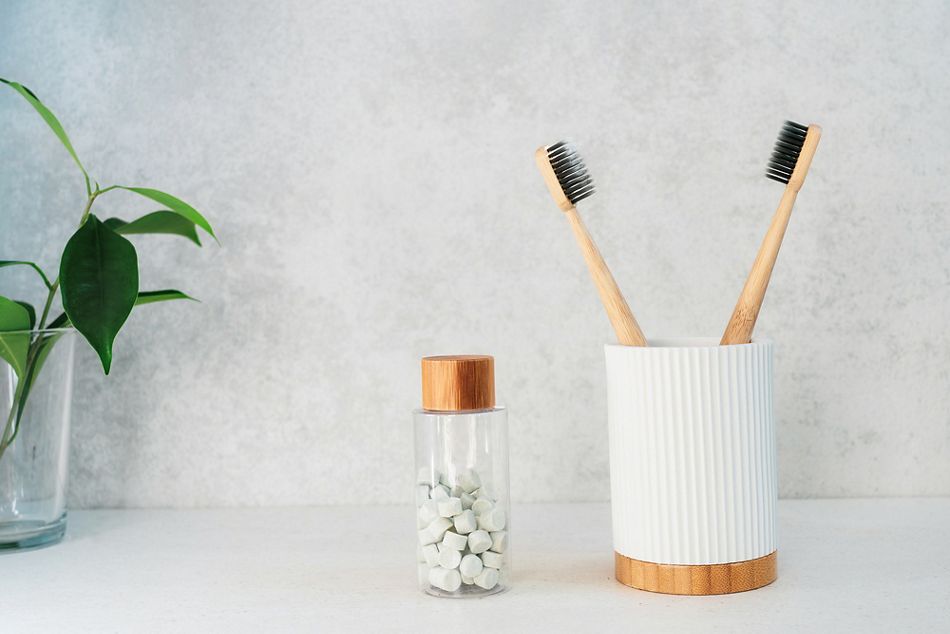
Install recycling points, ditch plastic cups and add bamboo toothbrushes and toothpaste tabs to your stock.
‘Waste-management systems are all part of the ‘green dentistry’ revolution.’
Seek out those greener options. Consider renewable resources, biodegradable and recyclable products and materials. Install recycling points, ditch plastic cups and add bamboo toothbrushes and toothpaste tabs to your stock. Look at the travel options of both staff and patients – introduce a ‘buddy’ system for staff and consolidate families into a series of appointments on the same day, so they all travel to see you at the same time.
Reconsider water and energy consumption and switch to green energy suppliers where possible while encouraging more energy-efficient habits, such as reusing and recycling, switching to LED lighting and reducing water consumption by being mindful of the amount of water left running.
Eradicating the use of amalgam, as well as taking steps to implement more responsible waste-management systems are all part of the ‘green dentistry’ revolution.
Some clinics have gone a step further. At his clinic, Bow Lane Dental in the City of London, UK dentist James Goolnik has appointed a ‘green’ lead dental nurse, or ‘eco-warrior’ as she is affectionately known, on his team. The clinic is also a verified carbon-neutral plus business.
In 2019, Bow Lane Dental became carbon neutral and were rewarded for their efforts in the London Clean City awards scheme.
James says: ‘Dental teams take every opportunity to talk to patients about how to minimize negative impact on their teeth, so why not include the environment in those conversations? Whether it is in our monthly newsletter highlighting the latest changes in our practice, or when speaking to suppliers about sourcing recycled and recyclable products, sustainability should be at the forefront of everything we do. Of course, it is important that the products and services are as good if not better than our regular choices in order to do what’s best for our patients, but it is reassuring to know that they really care, too.’
Additionally, rePurpose Global4 helps offset plastic for hundreds of businesses around the world.
In essence, sustainability should now be incorporated into a clinic’s ethos, and its management and governance policies, with teams striving to engage in and improve upon in-house practices.
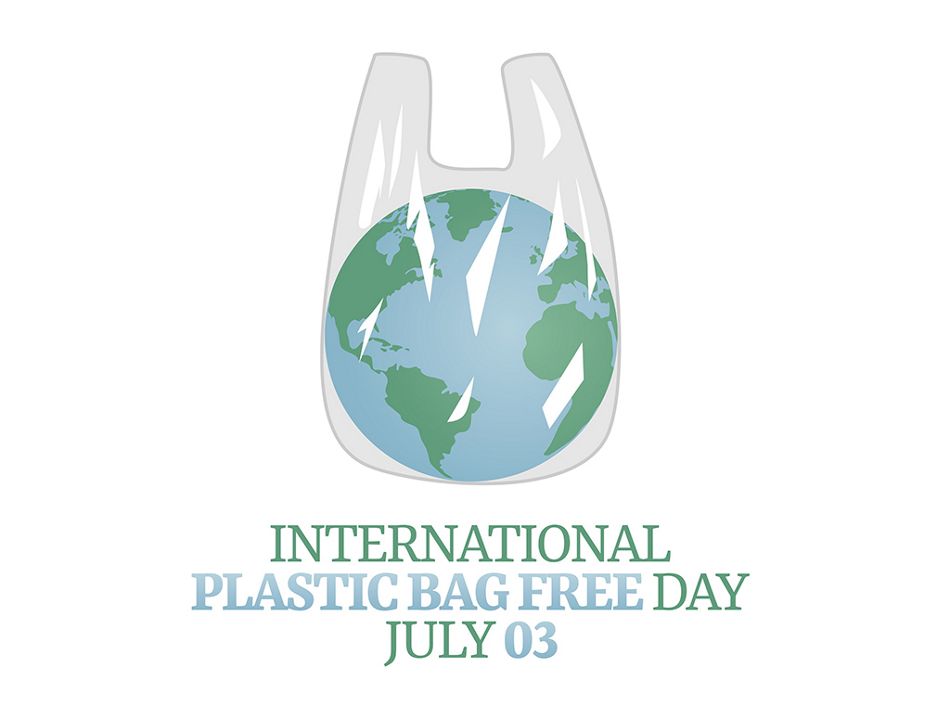
Join global campaigns to demonstrate to patients that your team takes sustainability seriously.
2. Sign up to ‘green’ campaigns
Join global campaigns, such as Plastic Free July5 and Earth Day6 to demonstrate to patients that your team takes sustainability seriously. Share initiatives across your social media platforms and inspire others to reduce their single-use plastic consumption.
3. Gauge patient interest in sustainability
If we accept that our patients are seeking ways to reduce their own carbon footprint, our own policies need to be communicated with clarity if clinics are serious about meeting sustainability expectations and, as a consequence, nurturing long-term patient loyalty.
But how do we weave this into conversations with patients – potential or existing? In email communications? On our social media platforms? During a consultation?
First of all, we need to make our messaging relatable and relevant to a patient’s dental experience and treatment choices, which means these discussions should take place as soon as possible.
There is a wealth of opportunity to ascertain where the conversation might be welcomed and if it's of interest to the patient.
We can gauge their response by gently introducing a conversation about the team’s values as a business and their approach or plans to become more sustainable.
4. Let the treatment coordinator start the conversation with patients
The treatment coordinator (TCO) is arguably the best person to lead these conversations with new patients, as they are usually the first port of call, staying with them on each treatment journey to the end.
During the initial tour of the clinic, a TCO can find out what the patient really values, how much sustainability resonates and then relate it to the treatment journey ahead.
The key to this is the way in which a TCO highlights the clinic’s USPs. The conversation might therefore be sparked by a poster of the team undertaking community-based initiatives, a display of eco-friendly accreditations and your corporate social responsibility details, the recycling station, what is (and isn’t) in the patient lounge – such as a refreshment area without plastic cup or plastic coffee pods – and in the eco-friendly oral health products you sell, such as bamboo toothbrushes and toothpaste tabs.
What we don't do is point out the obvious. Of course, we recommend toothpaste tabs because they are in a glass jar and we can get refills – but that is only half the story. We then need to explain the ‘why’. Talk to patients about the serious problem with disposing of toothpaste tubes. Explain that on average, it takes 500 years for a tube to fully biodegrade in landfill. Scripting and rehearsing these conversations will help make these communications flow so the messages have impact and the TCO is comfortable about conveying them with value and meaning.
Ask open-ended questions about awareness and focus on sustainability and how important it is to patients and explain how you value sustainability very highly.
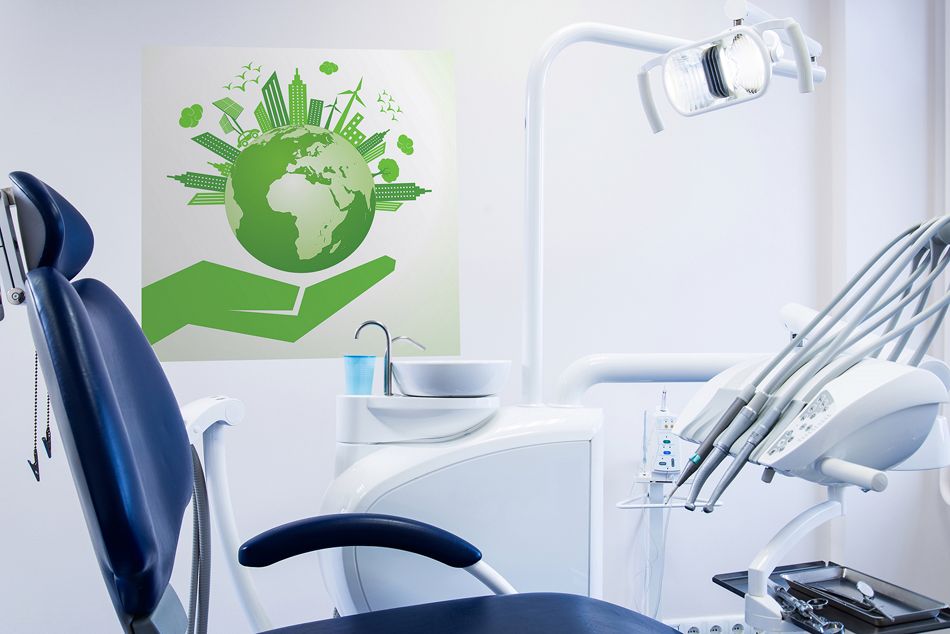
Infographics have enormous impact when it comes to sharing messages.
5. Be proud – and say it out loud
Infographics have enormous impact when it comes to sharing messages. Pulling out some key points about environmental issues and displaying them around the clinic is helpful.
There are also positive quotes about sustainability that clinics can share that may also lead to important conversations.
Don’t be afraid to be inventive and aim to relate the messaging to your values and your brand. An eye-catching poster that reads: ‘Our core values are to give patients beautiful smiles to last a lifetime’, ‘What sunshine is to flowers, smiles are to humanity’ and ‘Save the green and let the Earth smile’ can all help to get across your ethos in a positive but subtle way.
Social media is a powerful marketing tool and Instagram especially can convey so much to patients in photos, imagery and short videos with links to patient information and further reading on your clinic’s website.
6. Empower patients to make ethical choices
Within dentistry in the UK, GDC standards remind the team of the importance of taking a holistic and preventative approach to patient care. We therefore have an ethical obligation to ensure patients can make informed decisions about their own oral health care.
The inclusion of sustainable treatment options and care pathways in any communication is therefore pertinent. We should now be linking the health of our planet with human health, and arguably, a key to successful outcomes is in making sustainability relatable and relevant to each patient’s treatment choices.

Healthy teeth and gums = less dental appointments. This can be linked to reducing the carbon footprint.
7. Link sustainability to patients’ oral health
Good oral health care is a core value when it comes to dentistry’s sustainability credentials. Minimizing the need to attend clinics cuts carbon emissions, reduces energy use and PPE, doing away with unnecessary appointments whilst ensuring the longevity of our patients’ healthy smiles.
“If healthy mouths mean fewer appointments and clinics reducing their carbon footprint and less impact on the planet, then this is a win.”
Remember, patients with healthy teeth and gums are no longer expected to visit their dentist every six months as was traditionally recommended. The TCO can explain this to patients and link this with the need to offer more sustainable care. Discussing the benefits of dental plans with patients also raises awareness of the need to maintain good oral health. This minimizes the risk of dental disease, thereby reducing treatment frequency in the long term.
According to the FDI: ‘Sustainability integrates a broader commitment of the oral health professional to social and environmental responsibility. The right of future generations to a world with adequate natural resources must be respected.’
Final Thoughts
If healthy mouths mean fewer appointments, clinics reducing their carbon footprint, and less impact on the planet, then this is a win that is far greater than the success of any dental clinic.
References
- FDI World Dental Federation: Sustainability in Dentistry
- British Dental Association: Sustainability in dentistry
- Deloitte UK: How consumers are embracing sustainability
- rePurpose Global: Solving the Global plastic waste crisis
- Plastic Free July: What others do
- Earth day
Want to learn more about how you can make your practice more sustainable? Read on!

Want to stay up to date?
youTooth.com is THE PLACE TO BE IN DENTISTRY – subscribe now and receive our monthly newsletter on top hot topics from the world of modern dentistry.
